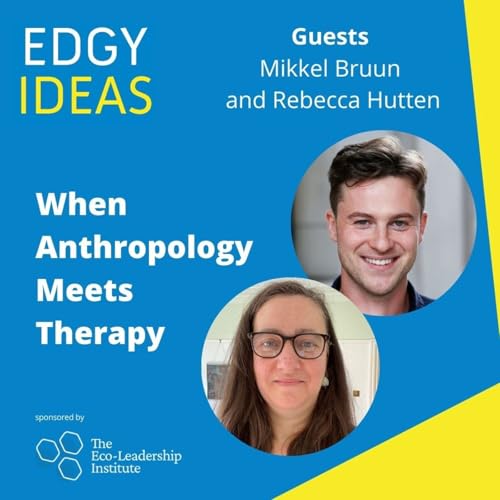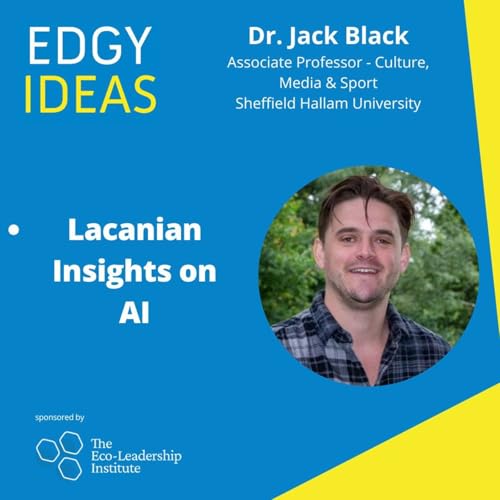
Edgy Ideas
No se pudo agregar al carrito
Solo puedes tener X títulos en el carrito para realizar el pago.
Add to Cart failed.
Por favor prueba de nuevo más tarde
Error al Agregar a Lista de Deseos.
Por favor prueba de nuevo más tarde
Error al eliminar de la lista de deseos.
Por favor prueba de nuevo más tarde
Error al añadir a tu biblioteca
Por favor intenta de nuevo
Error al seguir el podcast
Intenta nuevamente
Error al dejar de seguir el podcast
Intenta nuevamente
-
Narrado por:
-
De:
-
Simon Western
This podcast explores our human dynamics in today's networked society. Addressing topical themes, we explore how social change, technology and environmental issues impact on how we live, and who we are - personally and collectively. Edgy Ideas podcast aims to re-insert the human spirit, good faith, ethics and beauty back into the picture, offering new perspectives and psycho-social insights. We pay particular attention to how the ‘unconscious that speaks through us’, entrapping us in repetitive patterns and shaping our desires. Each podcast concludes by contemplating what it means to live a ‘good life’ and create the ‘good society’. Enjoy!
Edgy Ideas is sponsored by the Eco-Leadership Institute
A radical think tank and developmental hub for leaders, coaches and change agents.
Join our community of practice and work live with many of our podcast guests
Discover more here: https://ecoleadershipinstitute.org
Contact simon@ecoleadershipinstitute.org
Simon Western
Episodios
-
 Feb 20 202633 m
Feb 20 202633 mNo se pudo agregar al carrito
Solo puedes tener X títulos en el carrito para realizar el pago.Add to Cart failed.
Por favor prueba de nuevo más tardeError al Agregar a Lista de Deseos.
Por favor prueba de nuevo más tardeError al eliminar de la lista de deseos.
Por favor prueba de nuevo más tardeError al añadir a tu biblioteca
Por favor intenta de nuevoError al seguir el podcast
Intenta nuevamenteError al dejar de seguir el podcast
Intenta nuevamente -
 Jan 21 202637 m
Jan 21 202637 mNo se pudo agregar al carrito
Solo puedes tener X títulos en el carrito para realizar el pago.Add to Cart failed.
Por favor prueba de nuevo más tardeError al Agregar a Lista de Deseos.
Por favor prueba de nuevo más tardeError al eliminar de la lista de deseos.
Por favor prueba de nuevo más tardeError al añadir a tu biblioteca
Por favor intenta de nuevoError al seguir el podcast
Intenta nuevamenteError al dejar de seguir el podcast
Intenta nuevamente -
 Jan 9 202633 m
Jan 9 202633 mNo se pudo agregar al carrito
Solo puedes tener X títulos en el carrito para realizar el pago.Add to Cart failed.
Por favor prueba de nuevo más tardeError al Agregar a Lista de Deseos.
Por favor prueba de nuevo más tardeError al eliminar de la lista de deseos.
Por favor prueba de nuevo más tardeError al añadir a tu biblioteca
Por favor intenta de nuevoError al seguir el podcast
Intenta nuevamenteError al dejar de seguir el podcast
Intenta nuevamente
Todavía no hay opiniones


